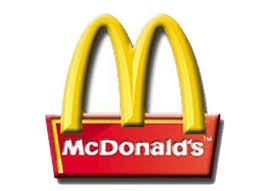
Six years ago, McDonald's looked obsolete. The company announced the first quarterly loss in its history, and its stock fell to a woeful $13 from an all-time high of $48.
Today, McDonald's stock is trading at nearly $60, same-store sales have grown for the 56th straight month and the company can boast of having achieved double-digit operating-income growth during the onset of last year's financial crisis.
Some observers credit the focus on better execution, beginning in 2004 when Jim Skinner was hired as chief executive officer. Others point to the recent redesign of the company's restaurants and the introduction of espresso drinks, or to consumer trends in a tough economy (although McDonald's (nyse: MCD - news - people ) had equally impressive gains in the happier time of 2007). But the real story behind the resurgence of the chain has to do with something simpler: empathy, the ability to see how the world looks through the eyes of others.After a better-than-expected quarterly earnings announcement on Jan. 26, Jim Cramer, the famously outspoken market analyst, went so far as to call McDonald's "the best-run major international company in the world."
Skinner (like other leaders we profiled in our book, Wired to Care) has been willing to step into the real world in ways that enable him to quickly identify new opportunities and spur his employees into action.
Skinner is doing more than just being a good manager. He's building a widespread sense of empathy, inside McDonald's, for the company's customers. Companies with a shared intuitive sense of the people outside their walls waste less time and money pursuing ideas that never pay off. They focus on actions that will create value for the people they serve, and they can do so because they understand what real people truly value.
Empathetic companies don't get paralyzed by a sea of contradictory information. They have the acuity to cut through the noise and focus on what really matters. Most important, they find ways to lay the foundations for new growth regardless of what their competitors are up to. And a dedicated leader can inspire any company to emphasize empathy as Skinner has done.

Skinner inherited McDonald's during its darkest days--it was underperforming, franchisees were leaving and it looked like the documentary Super Size Me might win an Oscar. Right away he eliminated menu items that weren't adding value, added new dishes like tastier salads and chicken sandwiches and committed to improving the quality of existing stores in addition to opening new ones.
His quick actions and decisiveness stand in stark contrast to the years before him, when market research led McDonald's to reformulate its recipe for special sauce no less than 14 times and launch unfortunate failures like pizzas and deli sandwiches. At its nadir, the company was distracted from what really mattered to ordinary people, which was, as Skinner toldThe New York Times recently, "hot, high-quality food at a great value at the speed and convenience of McDonald's."
How did he know what to do? He had experienced it all himself. After all, he began his career on the grill line at a McDonald's before working his way to the very top of the organization. In all that time, he had made sure to eat at a McDonald's every day. Not only because he genuinely likes Quarter Pounders, but also because it has allowed him to make two kinds of observations critical to the success of his company.
First, he knows as well as anyone whether the food and service are good or need improvement. Second, he gets to engage directly with McDonald's diners. He doesn't need to commission a big research report. He can just talk to the guy at the next table. It's an easy, everyday way to stay connected and see the business the way the rest of the world does.
Not every company is poised for growth this year. But every company needs to move quickly, make good decisions and launch new initiatives that add value so they can be ready to move ahead once the economy gets back on track. Amid the chaos, a rededication to empathy can provide the spark needed to boost morale and create new value at a time when it's all too elusive.
Skinner's success reminds us that in a crisis, the best way to get ahead is the best way businesses have done it for centuries: Have a gut sense for what people need and give it to them.



Comment On This Story